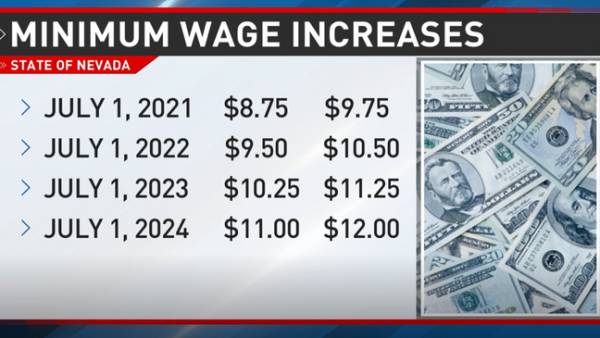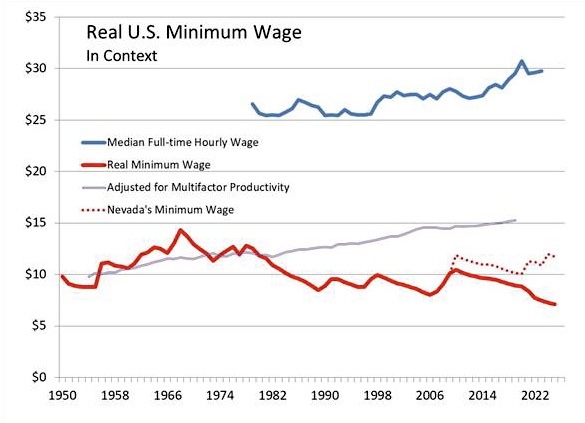Nevada has recently implemented a significant increase in its minimum wage, a move that aims to enhance the financial well-being of workers across the state. On July 1, 2024, the minimum wage was raised to $12.00 per hour for employees who receive health benefits and $13.00 per hour for those who do not. This increase is part of a broader initiative to address the rising cost of living in Nevada, particularly in urban areas like Las Vegas and Reno, where housing prices and living expenses have surged in recent years.

According to Keka and the Office of the Labor Commissioner, the decision to raise the minimum wage comes as part of a gradual plan established by the Nevada Legislature in 2019. The plan outlined a series of annual increases to the minimum wage, with the goal of reaching $12.00 per hour by 2024. However, due to the ongoing economic challenges posed by the COVID-19 pandemic, the state legislature extended the timeline, allowing for a more gradual approach to ensure that businesses could adapt to the changes without facing undue financial strain. The increase is expected to benefit approximately 200,000 workers in Nevada, providing them with greater financial security and the ability to better support themselves and their families.
“The new minimum wage means a lot for my team; it gives them more stability and helps them manage their expenses better,” senior Jordan Madrid says.
Supporters of the wage increase argue that it is a necessary step to combat poverty and improve the quality of life for low-income workers. Many advocates believe that raising the minimum wage will not only help workers make ends meet but also stimulate the economy by increasing consumer spending. As workers have more disposable income, they are likely to spend more on goods and services, which in turn can lead to job creation and economic growth. Additionally, proponents argue that a higher minimum wage can reduce employee turnover, as workers are more likely to stay with employers who offer competitive wages.
“As a manager, I see firsthand how hard my coworkers work, so I think this increase is really deserved. It shows that their efforts are being recognized,” Madrid adds.
On the other hand, some business owners express concerns about the potential impact of the wage increase on their operations. Critics argue that higher labor costs may lead to increased prices for consumers, reduced hiring or even layoffs. Small businesses, in particular, may struggle to absorb the additional expenses, which could hinder their ability to compete in the market. Nonetheless, many economists suggest that the overall benefits of raising the minimum wage outweigh the potential drawbacks, especially in a state like Nevada, where the cost of living continues to rise.
“While I understand some businesses might worry about costs, I believe that paying a fair wage can actually help us keep our best employees and reduce turnover,” Madrid says.
As the new minimum wage takes effect, it will be closely monitored to assess its impact on workers, businesses, and the overall economy. The Nevada Department of Business and Industry is tasked with ensuring compliance and providing resources for both employers and employees to navigate the changes. The increase in minimum wage represents a significant step toward addressing economic disparities and fostering a more equitable workforce in Nevada, reflecting the state’s commitment to improving the lives of its residents.
Madrid says, “With the rising cost of living, this wage increase is a step in the right direction. It allows us to focus on our jobs without constantly stressing about money.”











